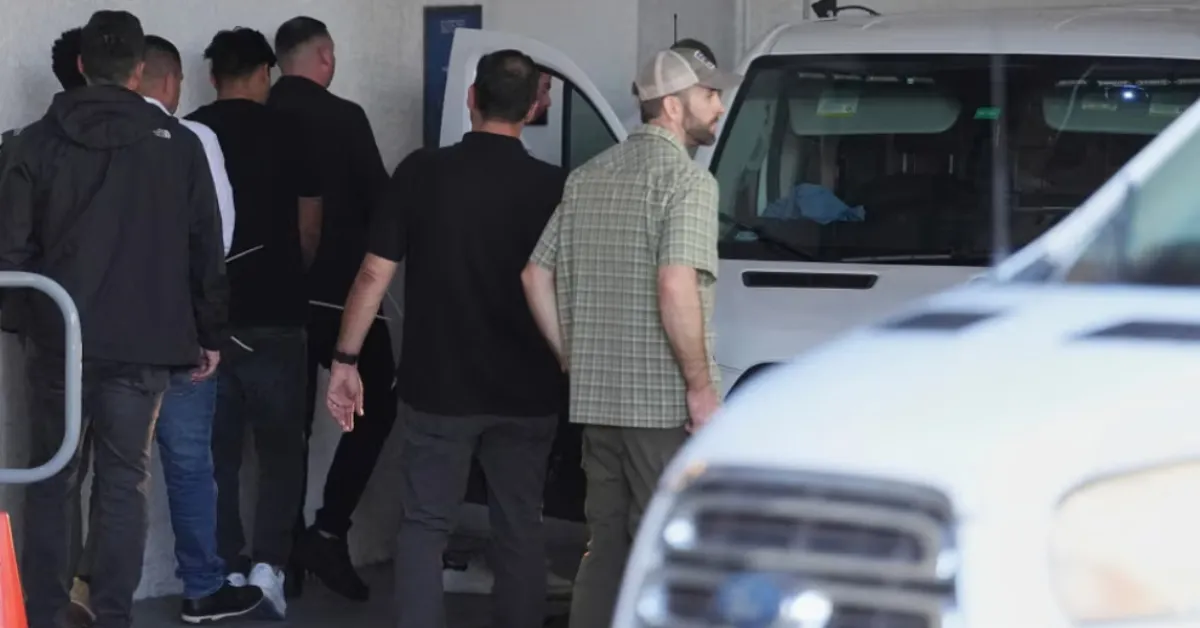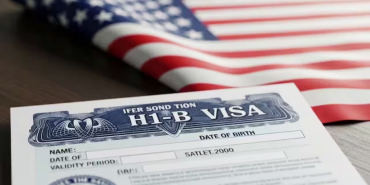Trump Administration Orders ICE to Make 3,000 Arrests Daily in Immigration Crackdown

The Trump administration has significantly escalated its immigration enforcement efforts, mandating Immigration and Customs Enforcement (ICE) to execute 3,000 arrests daily, a figure that triples previous quotas.
The directive, spearheaded by White House Deputy Chief of Staff Stephen Miller and Department of Homeland Security (DHS) Secretary Kristi Noem, underscores the administration's commitment to heightened deportations and a reshaping of federal immigration policy. The new mandate, communicated to ICE officials during a high-stakes meeting on May 21 in Washington, D.C., has sparked internal tensions within the agency. The meeting convened key personnel from ICE's Enforcement and Removal Operations (ERO) and Homeland Security Investigations (HSI), revealing a strategic shift in priorities.
ERO, responsible for immigration arrests and deportations, will see its resources amplified, while HSI, which focuses on broader transnational crimes such as drug trafficking and human smuggling, is expected to reallocate resources to support immigration enforcement efforts. This intensified enforcement push arrives amidst declining unauthorised border crossings, a trend that began under the Biden administration and has continued into Trump's second term. Consequently, ICE has shifted its focus to interior operations within the United States, targeting long-term residents and individuals with established ties to American communities.
Immigration advocates have voiced concerns that this approach fosters an environment of fear and uncertainty, disrupting established lives and community ties. One of the most contentious aspects of the new enforcement strategy is the expansion of arrest locations. Traditionally, sensitive areas such as courthouses were off-limits for immigration enforcement actions. However, ICE agents are now instructed to detain individuals at courthouses immediately after legal proceedings, a tactic that has drawn criticism from legal experts and immigrant rights organisations.
Critics argue that these actions undermine due process and deter individuals from complying with legal requirements, jeopardising the integrity of the judicial system.
The administration has also enlisted the support of other federal law enforcement agencies, including the FBI, Drug Enforcement Administration (DEA), and Bureau of Alcohol, Tobacco, Firearms and Explosives (ATF), to assist in immigration enforcement. This reallocation of resources has raised concerns among current and former officials, who warn that critical investigations unrelated to immigration, such as those targeting organised crime and drug trafficking, may suffer as a result.
The potential diversion of resources from combating serious criminal activities to immigration enforcement raises questions about the broader impact on public safety and national security. Local law enforcement agencies have also been drawn into the federal immigration crackdown through the 287(g) program, which deputises police departments and sheriff's offices to perform immigration arrests. This collaboration has led to a surge in detentions, with ICE reporting a record-high number of individuals held in custody. As of May 18, the number of detainees had reached 49,000, an increase of more than 10,000 since Trump took office.
The program's expansion has sparked debate about the role of local law enforcement in federal immigration matters, with critics arguing that it erodes community trust and leads to racial profiling. The administration's approach has sparked legal challenges and public outcry. Critics argue that the mass arrests and deportations are not only inhumane but also economically disruptive, as they remove workers from industries that rely on immigrant labour. Additionally, concerns have been raised about overcrowding in detention facilities, with experts questioning whether ICE has the capacity to accommodate the influx of detainees.
The lack of adequate resources and oversight in detention facilities has led to reports of substandard conditions and human rights violations, further fueling the controversy surrounding the administration's policies. Despite these challenges, the administration remains steadfast in its commitment to ramping up enforcement. ICE leadership has undergone a significant shake-up, with two senior officials, Kenneth Genalo and Robert Hammer, being removed from their posts. The agency has framed these changes as part of a broader effort to enhance operational efficiency and meet the administration's ambitious targets.
The leadership changes reflect the administration's determination to enforce its immigration agenda, even in the face of internal resistance and external criticism.
On Capitol Hill, lawmakers are debating the financial implications of the administration's immigration agenda. A major spending bill passed by the House allocates substantial funding for immigration enforcement while cutting resources for other essential services. Critics argue that the administration's spending priorities reflect a reckless approach, with funds being funnelled into private prison contracts and detention facilities at the expense of broader social programs.
As the administration pushes forward with its enforcement strategy, the broader implications remain uncertain. While officials argue that the crackdown is necessary to uphold immigration laws and protect national security, opponents contend that it represents an overreach that threatens civil liberties and disrupts communities. The coming months will likely see continued legal battles and public debate over the direction of US immigration policy. The intense legal and political scrutiny surrounding the administration's immigration policies highlights the deep divisions within American society regarding immigration reform and enforcement.














Add new comment